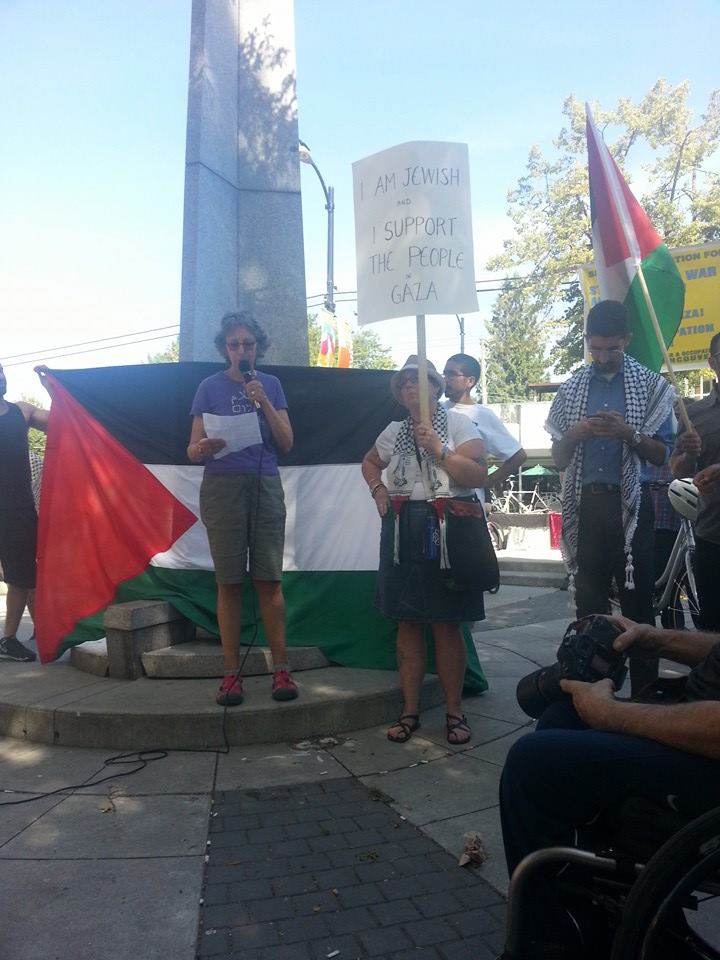At two recent demos here in Vancouver, my husband and I each held up a sign that said “I am Jewish and I support the people of Gaza.” The first time my husband held it up, within minutes a Palestinian asked to take a picture of the two of them with the sign. We were both quite taken aback. Since then we have been thanked many times for carrying our signs. I now always respond with the same comment: “Don’t thank me, I’m human and we’re all in this together.”
I was born just after the Second World War ended, and as a young child hearing about the death camps, I asked the innocent question, how could so many die like that and no one stopped it? Of course, I’m now a lot older and wiser, and now know the answer.
So yes, you can be Jewish and oppose the horrors being inflicted on the Palestinian people.
In fact, if you are Jewish and know your own peoples’ history, you should be speaking out. Since Israel’s attack on the mostly helpless people of Gaza, increasing numbers of Jews here in Canada and around the world are raising their voices, or, at minimum, beginning to question their blind support for the state of Israel. Unfortunately, it often comes at a high price, which is to be ostracized from their community. Hence, many who might now want to speak out are remaining silent.
In 2009, Farid Esack — a South African writer, scholar and human rights activist who was appointed gender equity commissioner by Nelson Mandela — wrote a letter to the Palestinian people. The entire letter was subsequently painted on the Apartheid Wall in the Jerusalem area. I came upon it when searching for the origins of the slogan “an injury to one is an injury to all.” I first learned this slogan when I cut my political teeth during the 1970s in the South African anti-Apartheid movement. It was a core slogan of the ANC and SACTU.
Here’s a brief part of what Esack wrote:
“We as South Africans resisting apartheid understood the invaluable role of international solidarity in ending centuries of oppression. Today we have no choice but to make our contribution to the struggle of the Palestinians for freedom. We do so with the full awareness that your freedom will also contribute to the freedom of many Jews to be fully human in the same way that the end of apartheid also signaled the liberation of white people in South Africa….Apartheid diminished the humanity of white people in the same way that gender injustice diminishes the humanity of males….
“At public rallies during the South African liberation struggle the public speaker of the occasion would often call out: ‘An injury to one!’ and the crowd would respond: ‘Is an injury to all!’ We understood that in a rather limited way at that time. Perhaps we are destined to always understand this in a limited way. What we do know is that an injury to the Palestinian people is an injury to all. An injury inflicted on others invariably comes back to haunt the aggressors; it is not possible to tear at another’s skin and not to have one’s own humanity simultaneously diminished in the process.”
So let us all remember, whether it’s the Warsaw Ghetto, apartheid South Africa, or the Gaza of today — an injury to one is an injury to all.
Joanne Naiman is a member of Independent Jewish Voices — Vancouver. This piece is a slightly revised version of a speech she gave on behalf of IJV at a march and rally for the people of Gaza on August 9.
Image: Facebook/Matthew Dadpour



